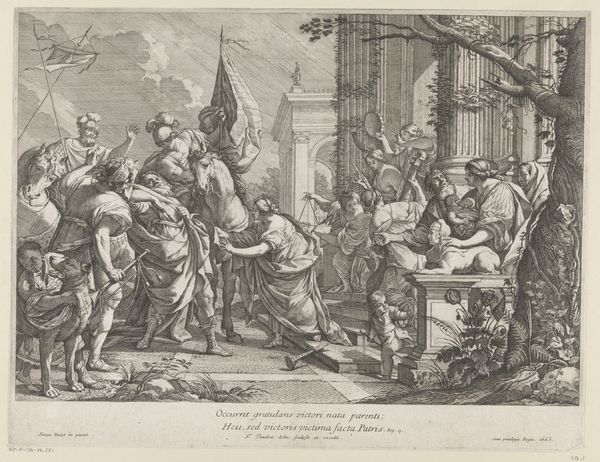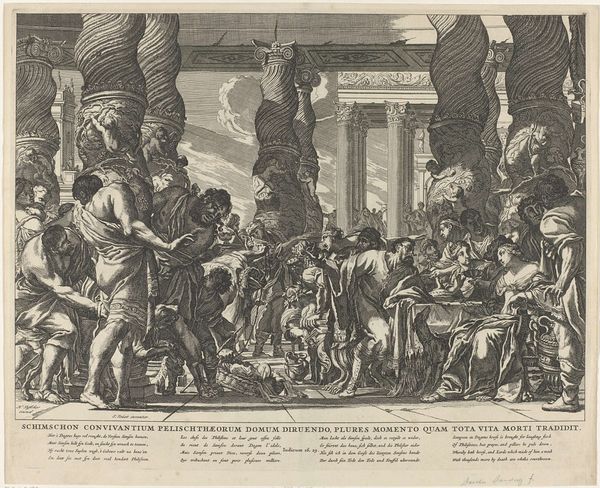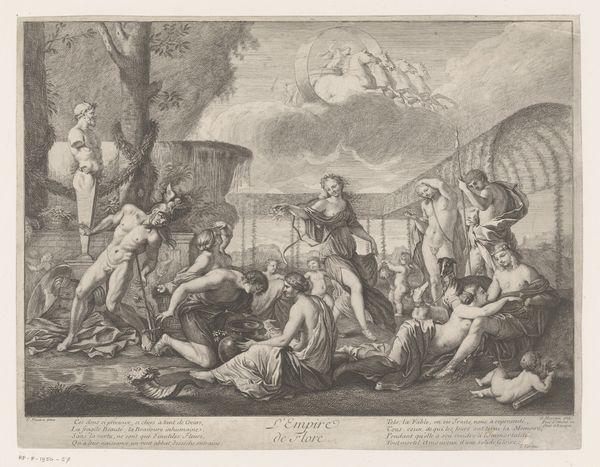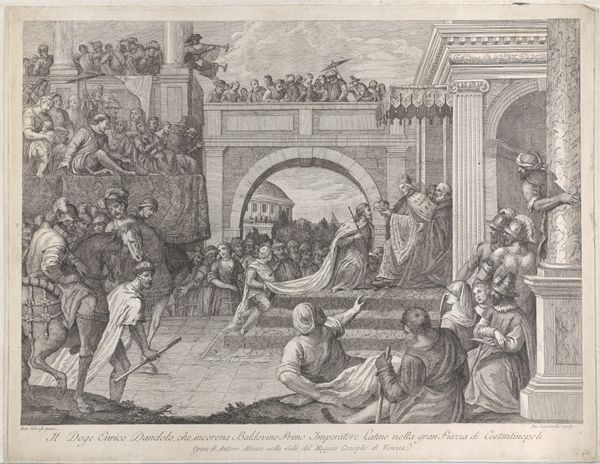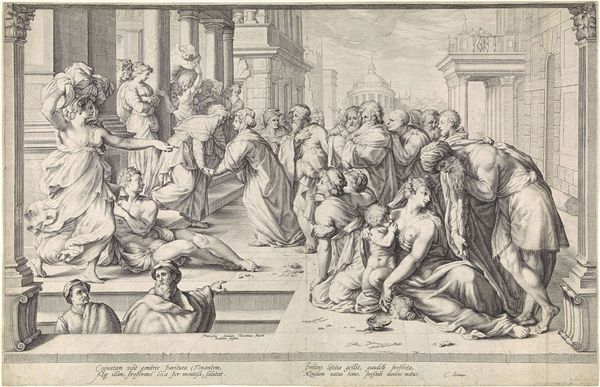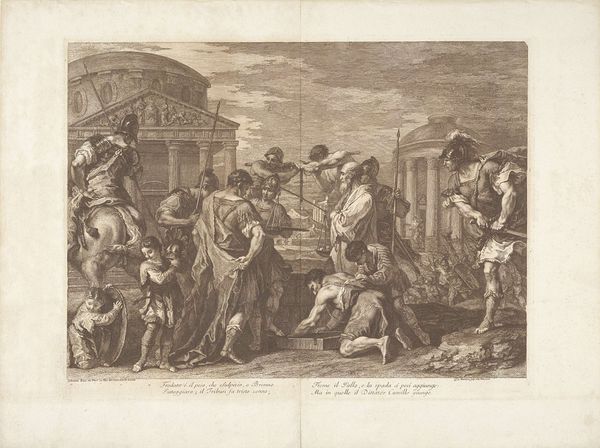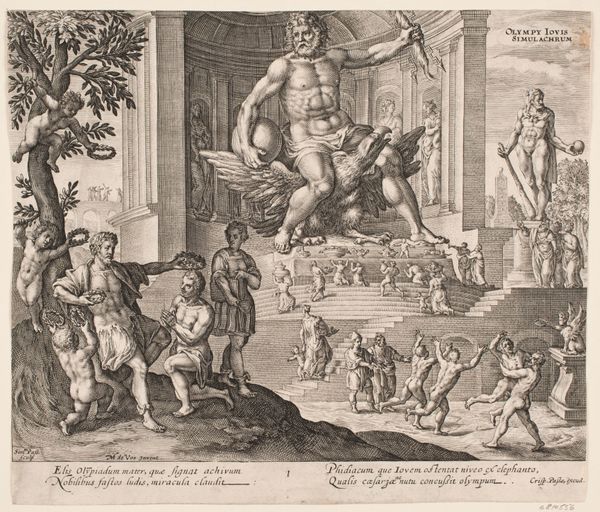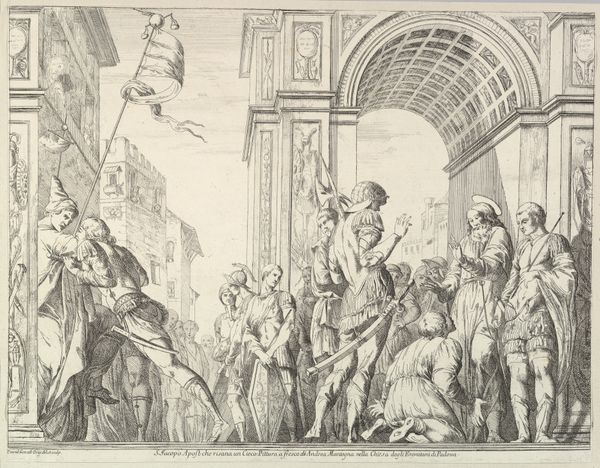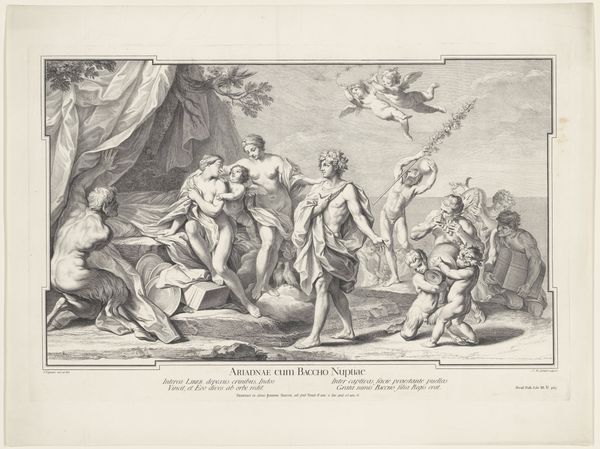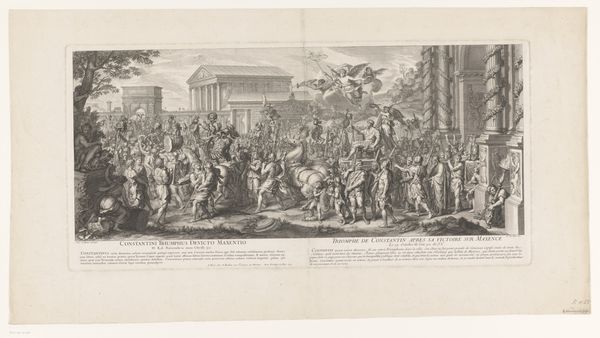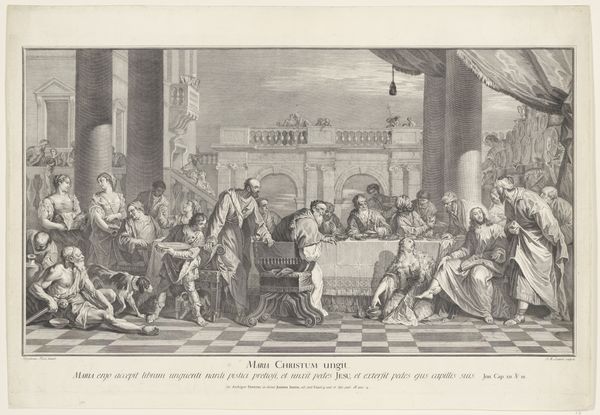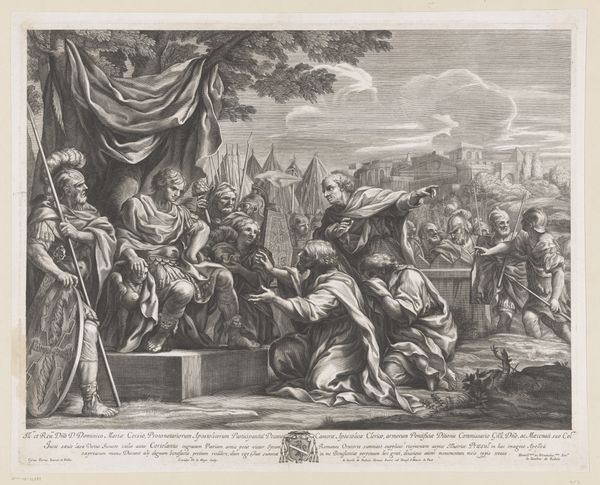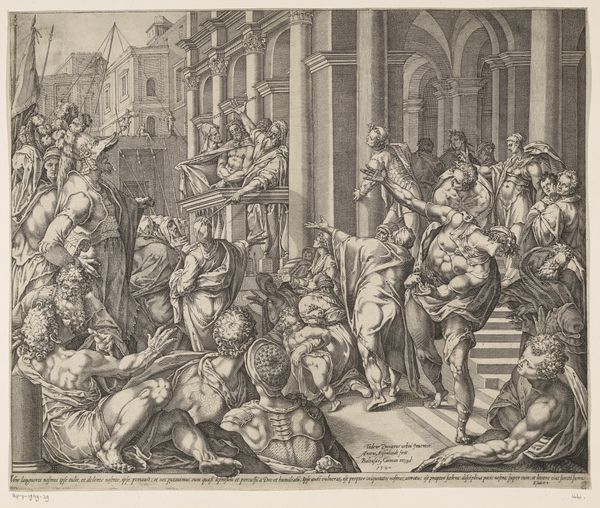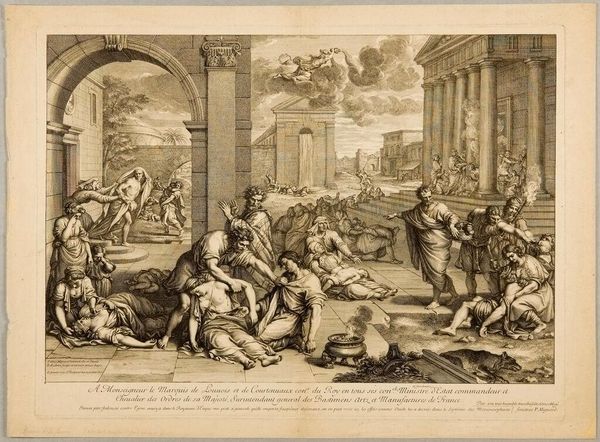
print, engraving
#
baroque
# print
#
old engraving style
#
figuration
#
line
#
history-painting
#
engraving
Dimensions: height 398 mm, width 526 mm
Copyright: Rijks Museum: Open Domain
This print, made by François Tortebat in 1665, depicts Samson being led to a pillar in the temple of Dagan. It's an engraving, a process that involves cutting lines into a metal plate, inking the surface, and then using a press to transfer the image to paper. Engraving requires immense skill and labor. The artist meticulously carves the image in reverse, using tools to create precise lines and textures. Look closely and you'll notice how Tortebat uses the density and direction of the lines to create shading and volume, bringing the biblical scene to life. Prints like this were often made in multiples, allowing images to be widely distributed. Consider the social implications of this process. It made art more accessible, but also relied on the skilled labor of the engraver to translate an original design into a reproducible format. The very act of making this print speaks to the complex relationship between artistic expression, technical skill, and the social context of 17th-century Europe.
Comments
No comments
Be the first to comment and join the conversation on the ultimate creative platform.
